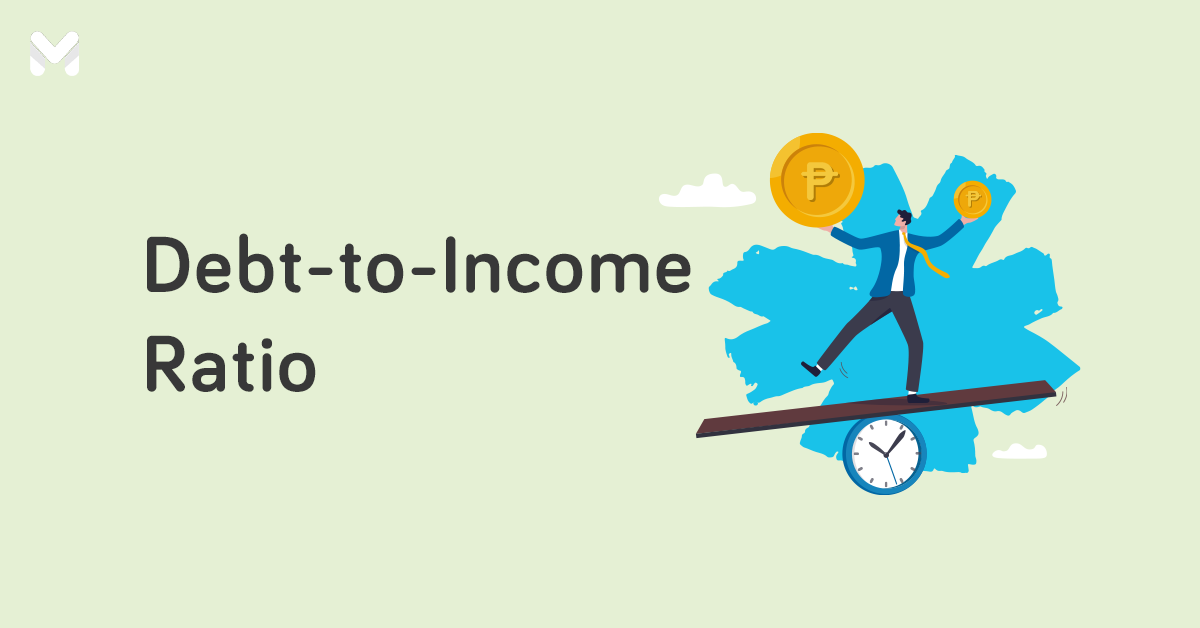Let's say you're applying for a loan to start a business. You're confident you'd get approved because you've met all the qualifications and submitted all the requirements. Your income documents also prove you can repay the loan.
But much to your surprise, the bank denies your application. You wonder, “What could be wrong?”
Well, banks and other financial institutions can’t lend money to anyone without basis. They consider a person’s credit score in the Philippines before approving or rejecting a credit card or loan application.
That’s why keeping track of your credit score is crucial. Read on to better understand what a credit score is, how it works, and why you need to check yours.
What is a Credit Score and How is It Computed?
Your credit score is a three-digit number representing your creditworthiness or ability to pay off a loan based on the information in your credit report. In short, this number can make or break your finances.
Is there a credit score in the Philippines? There’s no unified or standard system of credit reporting here like what they have in Canada or the U.S. However, the Credit Information Corporation is in charge of credit scoring in the Philippines.
✔️ What are Included in the Credit Score Computation?
Credit bureaus calculate credit scores[1] based on five criteria. Take note of these factors when improving your credit score:
- Credit payment history: This pertains to how regularly you pay your debts, how much you repay, and whether you've paid on time or not.
- The amount owed or credit utilization ratio: How much of your credit limit do you spend? If you max out your credit card, you're likely to miss your loan repayments in the future and get a lower credit score.
- Length of credit history: This refers to the average age of your credit card and loan accounts and the length of time since they were used.
- Types of credit used: Credit types include auto loans, mortgages, and credit cards. This information gives lenders an idea that you can manage different credit types responsibly.
- New credit: How often do you open new accounts? Applying for multiple credit cards or loans at once can hurt your credit score.
❌ What are Excluded from Your Credit Score?
Contrary to popular belief, the following factors are not included when computing your credit score:
- Income
- Assets
- Age
- Gender
- Affiliations (religion, race, ethnicity, political affiliation, etc.)
- Non-credit banking information (savings accounts, checking accounts, investment accounts, debit cards, prepaid cards, and other non-credit bank accounts)
What is a Good Credit Score?

A credit score in the Philippines ranges from 300 to 850, with 850 being the highest rating. The higher your credit score, the better.
Landing in the 650 to 699 or 700 to 759 range is pretty good, too. Anything lower than this is a poor or bad credit score.
Banks, insurance companies, and other financial institutions use the credit score, among other things, to assess a borrower's credit risk.[2]
What is the Difference Between a Credit Score, Credit Report, and Credit History?
Your credit score, credit report, and credit history are interrelated yet different from each other.
A credit report is a comprehensive summary of all financial transactions, including loans and utility subscriptions. It contains credit information such as balances and missed payments, as well as personal data such as name, TIN and SSS/GSIS number, home address, and employer.
It's used as the basis for computing a person's credit score in the Philippines.
Meanwhile, credit history is a record of one's ability to repay debts over the years. It describes how you use credit and how responsible you are as a borrower.
Credit Reporting and Scoring System in the Philippines: How Does It Work?

Created through Republic Act 9510 or the Credit Information System Act, the Credit Information Corporation (CIC)[3] is the only centralized registry of credit data in the Philippines. The CIC is authorized to collect, consolidate, and share credit information with all financial institutions in the country.
Banks, cooperatives, insurance firms, and telecom companies submit their clients' credit histories to the CIC, which then collates the information into detailed credit reports. Authorized lenders can access credit reports from the CIC.
The CIC has three accredited credit bureaus or special accessing entities that compute credit scores in the Philippines:
- CIBI Information, Inc.
- CRIF Philippines
- TransUnion Philippines
Why is a Good Credit Score Important?

Banks consider a variety of factors when deciding whether to lend money to someone or not. Apart from the financial information submitted via a loan or credit card application, banks also use a borrower's credit report and credit score to gauge their ability to pay back a debt.
To gain the bank's trust, you must prove your commitment and responsibility to pay back what you owe on time. Use a good credit score in the Philippines as your proof.
Here are more benefits of a good credit score:
👍 Easier Approval for Loans or Credit Cards
If you apply for a credit card or a loan and get denied, it’s possibly because of your low credit score. Although it’s not always the case, a low credit score appears to be the top reason certain banks and financial institutions decline applications.
Send in your application more confidently and increase your chances of approval with a high credit score. You can enjoy easy credit access because lenders will see you as a reliable, trustworthy borrower. Your loan or credit card application will get approved faster than those with poor credit scores.
👍 Higher Loan Amounts and Lower Interest Rates
Credit reports enable lenders to make fair and objective decisions when processing loan and credit card applications. If you're found to be creditworthy based on your credit report, you'll qualify for higher loan amounts and credit card limits with lower interest rates. The lower you pay in interest, the more money you’ll save, and the quicker you’ll pay off your dues.
👍 Lower Insurance Costs
Your credit score may also affect how much premium you’ll pay for your car or life insurance. You can get a discount on insurance rates with a good credit score, while a bad credit score can cost you higher premiums.
👍 Better Deals on Property Leases
The importance of a credit score in the Philippines goes beyond credit cards and loans. It also matters when negotiating better deals, such as renting a property. If you know you have a high credit score, you can use that to negotiate a one-month advance payment rather than the usual two-month deposit.
👍 Higher Chances of Getting Hired
Your potential employers may conduct background checks, or even avail of the employment history check service from credit bureaus in the Philippines. They may also look specifically at your credit score or credit report to determine how responsible you are as a potential employee.
How to Check Your Credit Score in the Philippines
Filipinos can get their credit report for a minimal fee from the CIC or one of its accredited credit bureaus.
Alternatively, you can know your credit score in the Philippines from CIBI Information Inc. via the Lista app.

Follow these steps:
- Download the Lista App from the Apple Store or Google Play Store.
- After registering for an account, tap Your Credit Score on the home screen.
- Tap Request Now.
- Read the Terms and Conditions of Use and the Privacy Policy. Tick the box. Tap Proceed.
- On the Know Your Score page, enter your personal information and ID details, then tap Submit.
- Pay ₱199 for your credit score request.
- Upload your valid ID and supply all the information required.
- Tap Confirm Details to proceed with the Liveness Check.
- When you finish the Liveness Check, tap Check My Score to submit your credit score request.
How to Improve Your Credit Score in the Philippines

Although improving your credit score can’t be achieved overnight, the little things you do today can help. It’s never too late! You can start being responsible with your finances now to benefit from it in the future.
✔️ Build Good Credit at the Onset
Got your first credit card? Make sure to use it right. Swipe responsibly because your credit card activities comprise a considerable chunk of your credit score. It will also be the basis of whether or not you’ll get approved for future loans.
Don't have a credit card yet? Start your journey with one of the best credit cards in the Philippines:
| Credit Card | Best For | Key Features |
|
UnionBank Rewards Credit Card
|
Rewards
|
|
|
Metrobank Platinum Mastercard®
|
Dining
|
|
|
BPI Rewards Card
|
Beginners
|
|
|
UnionBank Lazada Credit Card
|
Online Shopping
|
|
|
Petron BPI Card
|
Fuel Purchases and Auto Services
|
|
✔️ Always Pay on Time
While it sounds easy enough to pay your bills on or before the due date, there will be times when you won't be able to. Life isn't cut black and white. Sometimes, things will force your financial focus elsewhere for a while.
If you do fall off the wagon on any debt repayments, it's ideal to get back on track ASAP. The sooner you do, the less it will negatively impact your credit score. When lenders check your records, they won't be riddled with failure to pay or late payment notices.
It's ideal to avoid late payments as much as you can to also prevent any amount of debt from gaining interest.
To never miss a due date, download your bank’s mobile banking app or a money management app to keep track of your due dates and payments. You can also enroll your bills in an auto-debit arrangement, so you don’t need to pay your accounts one by one.
Read more: Get Your Finances in Order with the Best Budget Apps in the Philippines
✔️ Don’t Max Out Your Credit Card
Do you have a six-digit credit limit? Don’t take it as a sign to overspend. If you max out your credit card, you won’t just have a huge bill—you’ll also be flagged as someone at risk of taking on too much debt and having difficulty repaying.
Such instances can cause your credit score to go down. The balance on your credit card will include interest charged to any previous balances as well.
It's ideal to keep your usage within 30% of your credit limit. It means that on a maximum credit limit of ₱20,000, you'll want to stay within ₱6,000 below every month.
Keep track of your credit card spending and only use it for emergencies or big-ticket items you can pay in 0% interest monthly installments, so you can stay within your limit each month. You can also use it for paying your bills to earn rewards points or cashback but make sure to pay your bill in full.
Read more: How to Budget Money: Your Guide to Making a Personal Budget Plan
✔️ Ask for a Credit Limit Increase
It may sound counter-productive to increase your credit limit. But the reasoning behind this is that credit reports work on percentages. Because of this, a higher credit limit will make it look like your utilization is lower.
For example, on a credit limit of ₱40,000, a ₱6,000 spend is a smaller percentage than it is on a ₱20,000 limit. Remember that you must consistently pay your credit card bills on time with an active account in good standing before asking for a credit limit increase.
✔️ Avoid Multiple or Successive Loan or Credit Card Applications
The more, the merrier? Not really, especially when it comes to credit card or loan applications. If you get rejected, don’t immediately go to the next bank to apply for another.
Not only does this make you look desperate for credit—successive applications in a short period can hit your credit score. So space out your loan applications strategically. Settle your existing loans before applying for a new one.
For now, ignore other credit card offers if you're already dealing with debt or still new to your credit card. You might get offers for "lower" interest or higher cashback rates on certain credit cards. But it's ideal to stay away because you can get slapped with higher fees and penalties if you are unable to keep paying in full and on time every month.
✔️ Don’t Default on Your Credit Cards or Loans
A default occurs when you stop paying off debt, like your credit card or a loan. Defaulting on your credit card or loan payments reduces your credit score drastically.
If you fail to pay your credit card or loan for a given period (usually up to 180 days), banks or loan providers will close the account and seize the asset (for secured loans). They will endorse or sell your account to a collections agency.
Read more: Tired of Living Paycheck to Paycheck? Live Within Your Means with These Tips
FAQs on Credit Scoring in the Philippines
-Dec-13-2022-08-09-53-9737-AM.png?width=675&height=450&name=Pics%20for%20blog%20-%20600x400%20(1)-Dec-13-2022-08-09-53-9737-AM.png)
1. Can you reset your credit score?
Sadly, you can’t reset or wipe your credit score clean. While you can’t delete records of your financial activities, you can improve your credit score over time to make it as good as new.
2. How quickly does your credit score improve?
It depends on your financial situation, commitment, and consistency. It can take anywhere from a month to several years.
3. What is the fastest way to improve my credit score?
Re-establishing a good credit score takes time and careful planning. Pay your credit card or loan balances to boost your credit score. Increase your credit limit by reducing your credit card use, making multiple payments, and paying more than the minimum amount due.
Do this consistently, and you’ll see a positive change in your credit score.
Related reading: Live a Rich Life: This Netflix Show Tells You How
Final Thoughts
Even if you’re not in the market for a credit card or a loan, having a good credit score in the Philippines can have a significant positive impact. A good credit score indicates financial reliability and responsibility, so financial institutions, employers, and even landlords frequently check it.
Make it a habit to monitor your credit report and credit score to see if you need to improve them. Doing so will also allow you to correct errors, raising your chances of getting approved for a housing loan, car loan, personal loan, or credit card.
Sources:
- [1] How Is My Credit Score Calculated? (Investopedia, 2023)
- [2] Credit Risk (Investopedia, 2023)
- [3] Credit Information Corporation (CIC) official website
















